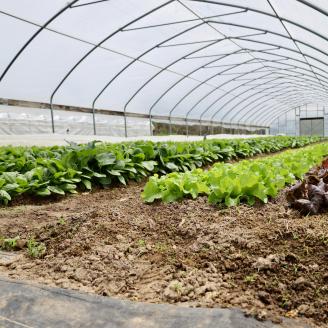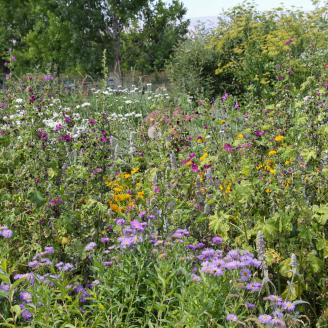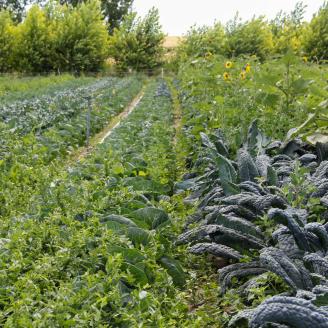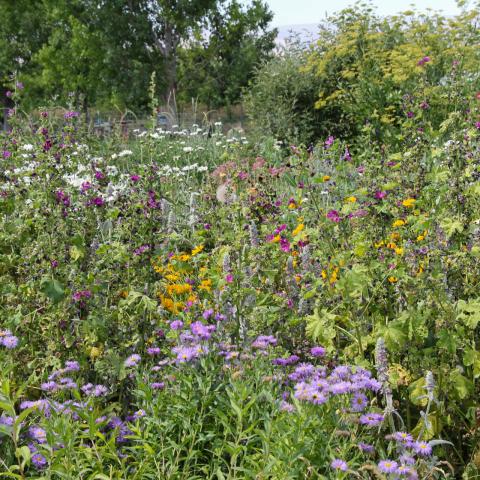
What is Urban and Small Acreage Agriculture?
Urban Agriculture is any agriculture that:
- Inside city limits (or directly bordering city limits, including a complete residential subdivision of a community with a population of 2,500 or more OR
- Digitized as Urban Land on the Web Soil Survey OR
- In a community inside an Indian Reservation Boundary OR
- Is zoned as Urban Ag or is an Urban Ag District inside city limits OR
- Is a designated community garden OR
- Is a Community Supported Agriculture (CSA) program OR
- Is within a designated Food Desert Area with a Food insecurity Rate of 15% or greater, as according to Feeding America
There are so many ways to conserve natural resources in urban and small acreage environments. To learn more about urban and small acreage agriculture, check out the resources below!
Key Urban and Small Acreage Practices

High Tunnels

Conservation Cover Cropping (Acres) 327
•Conservation cover for pollinators and beneficial insects (E327A)
•Establish Monarch butterfly habitat (E327B)

Conservation Crop Rotation (Acres) 328
•Resource Conserving Crop rotation (E328A)
•Improved resource conserving crop rotation (E328B)
•Soil health crop rotation (E328E)
•Modifications to improve soil health and increase soil organic matter (E328F)
•Crop rotation on recently converted CRP grass/legume cover for soil organic matter improvement (E328G)
•Intercropping to improve soil health (E328N)

Residue + Tillage Management (No Till) 329
•No till to reduce tillage induced particulate matter (E329B)
•No till to increase plant-available moisture (E329C)
•No till system to increase soil health and soil organic matter content (E329D)
•No till to reduce energy (E329E)
Organic Transition Initiative
Are you interested in transitioning to Organic? NRCS Idaho can help!
NRCS Idaho Announces Sign-up for Organic Transition Initiative
The United States Department of Agriculture's (USDA) Natural Resources Conservation Service (NRCS) in Idaho is now accepting applications for enrollment in the Organic Transition Initiative (OTI).
Learn More


